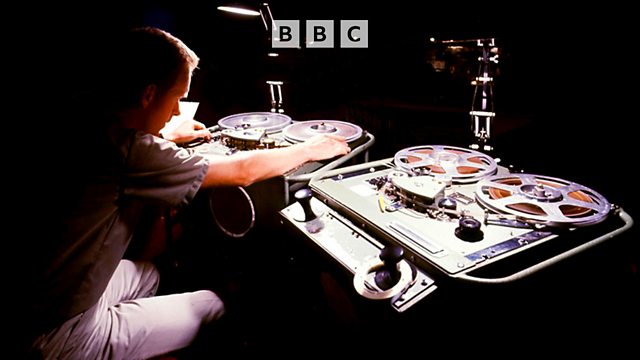
The People's Republic of Hulme
The story of how a Manchester slum became a creative hub, using archive material and interviews with former residents of Hulme's infamous deck-access flats.
25 years ago, the Manchester district of Hulme became so difficult for the city council to administer that they left many of the residents to their own devices - with surprising results.
Europe's biggest concentration of deck-access concrete flats, the "crescents" (a nod to the Georgian crescents of Bath), had, after only two years, been declared unfit for families to live in, and within ten years, become unheated, pest-infested slums. The police refused to patrol anywhere above ground level - including the "decks" - and so the Crescents went unpatrolled. Rent was always cheap in Hulme, but as life on the Crescents deteriorated, the council stopped charging rent entirely. The result, to some, was anarchy, with widespread crime and squatting. Other people found the freedom to be incredibly creative. Residents didn't only cover the grey concrete surfaces in graffiti - they converted the flats into recording studios and illegal nightclubs, such as The Kitchen, fashioned from three knocked-through flats, where during the rise of "acid house" in the late 1980s, the music provided a very much wilder alternative to the nearby Hacienda club.
Many Mancunians still value this version of Hulme. Hulme may not have been a good place to raise a young family, but for anyone young and in need of cheap or free accomodation, or work-space, Hulme could provide them. With Manchester's two universities, and the city centre, only ten minutes' walk away, Hulme was also conveniently central. Hulme also had a history of groundbreaking culture - it had its own arts cinema the Aaben, and in the late 1970s Tony Wilson had promoted the first Factory nights at the Russell Club in Hulme, before the Hacienda was ever built. Hulme was also politically radical. Tamil refugee, Viraj Mendis, fighting extradition in 1986, took refuge in the Church of the Ascension, Hulme, for two years, and was defended by a weekly demonstration that marched from Hulme to stop the traffic on Oxford Road. Police eventually entered the church and arrested him. Creative movers including Nico, Alain Delon, Sasha, Mike Pickering, A Guy Called Gerald, the Ruthless Rap Assassins, and Mark Kermode himself, who all lived in, and sometimes performed in, what was otherwise a vast slum. But the crime levels rose after the city's second "summer of love" gave rise to stronger, deadlier drugs and the spread of criminal gangs. Traveller-communities, and veterans of radical environmental protest, arrived in customised buses. The continuous party atmosphere went on, but the writing, for Hulme's low-rise apartment blocks and crescents, was on the wall.
When the Crescents were demolished, in the early 1990s, it was filmed, commemorating the final flattening of what for them had become a bohemian peoples' republic. In fact much of the period this programme looks into - from the 1970s to the mid-90s - coincides with rise of home-video and a strong, local independent film-making mini-industry. This programme will utilise an archive drawn from Manchester's former Film and Video Workshop, which helped in the making of video documentaries like "No Place Like Hulme" (1989) and super-8 films like "No City Fun" (1978) which were made in Hulme at the time.
But as far back as the 1940s, the planning of the concrete crescents had been predicted in a government-funded film, "A City Speaks" - where the former landscape, of Victorian back-to-back terraced houses was juxtaposed with sleek, modernist visions for what eventually became the low-rise concrete Hulme built in the late 1960s and early 70s. On the soundtrack, the Halle Orchestra blasted out Wagner's Ride of the Valkeries. Hulme always seems to have inspired dramatic musical accompaniment.
And like the beginning, the end of Hulme was also well-documented. 1993's Hulme Demolition Sound System and the amazing night-time performance given by theatre group Dogs of Heaven, when cars were pushed off the top of one of the floodlit Crescents, will provide another high-point in a programme tracing the story of this defiant, expressive, chaotic centre for regional popular culture.
Last on
More episodes
Previous
Broadcasts
- Sat 7 Aug 2010 20:00麻豆官网首页入口 Radio 4
- Mon 9 Aug 2010 15:00麻豆官网首页入口 Radio 4 FM
